Pakistani cinema strikes back and it's on the right track
Film distributors, actors and film-maker discuss revival of cinema
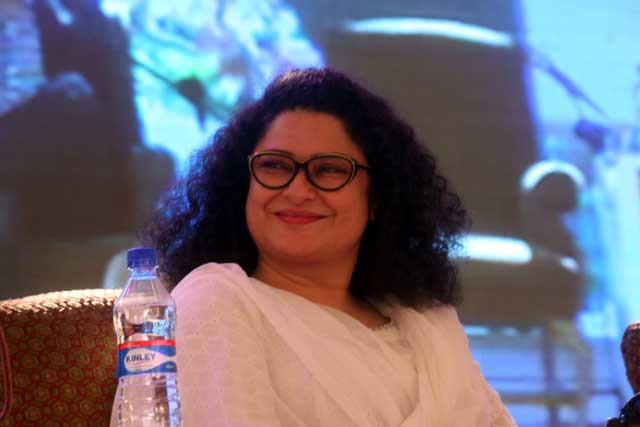
Veteran actor Sania Saeed. PHOTO: EXPRESS/ ATHAR KHAN
Speakers at the session, titled ‘Pakistani Cinema Strikes Back’, on the second day of the 7th Karachi Literature Festival’s were of the opinion that the revival of cinema is on the right track.
Talking about the rise of the industry in the past few years, Mandviwalla Entertainment chief executive Nadeem Mandviwalla, who is also a producer, distributer, exhibiter and importer of films, said that it was the change of government policies that played a major factor in the rebirth of the local cinema. He believes that rebuilding cinemas automatically led to the point that filmmakers started making movies locally.
Two generations: Khoosat versus Khoosat
“We never went through an evolution process that every industry goes through in every country,” he said. According to Mandiviwalla, after the government changed the policy of charging high rate of entertainment duty on cinema in 2001, cinema became very feasible to build. “However, by then, we no longer had a film industry left and we did not have anything to play,” he added. Mandiviwalla said that it was after this that they had to debate with the government to provide allow the public to see the kind of cinema they wanted. “Good or bad, the popular demand is the Indian movies,” he said, adding that this happened in 2007 that the public got to see what they wanted to in cinemas.
Cinepax Cinemas CEO Hashim Raza talked about whether or not Pakistani movies manage to make profits or not. “We need passionate filmmakers to come back to film industry, without thinking whether that this movie is going to be financially profitable or not and with the passion only to make quality cinema,” Raza said.
He added that films such as Moor, Shah, Manto were not necessarily profitable but they added to the culture and heritage of Pakistani cinema. “They addressed some Pakistani issues through these films, which were very important to the cause,” Raza said.
Talking about the publicity and marketing of a film, Farjad Nabi, who is a director, producer, cinematographer and documentary maker said that the films being produced by television channels get a lot more publicity than independent films. “The power in the cinema market is very lopsided right now, as it is not in the favour of independent filmmakers,” Farjad said.
Actor Sania Saeed was of the opinion that the filmmakers should tell stories from the society, which are related to our culture and traditions. She agreed, however, that this will take time and might cost a lot in terms of money. Quality films are needed to made, she said, adding, “Our audience is ready to see any kind of story and cinema.” She believes that entertainment in films is not only limited to just songs and dance.
Referring to the objectification of women in films and dramas, Nimra Bucha, a theater and television actor, said that this has become a universal thing which we see happening in movies and television. Talking about his transition from television to the big screen, actor and singer Tipu Sharif said that films are an easier medium of acting.



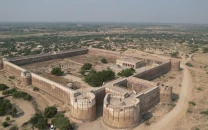
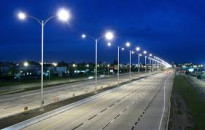
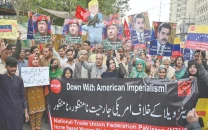
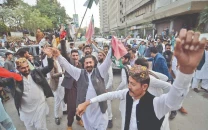












COMMENTS
Comments are moderated and generally will be posted if they are on-topic and not abusive.
For more information, please see our Comments FAQ